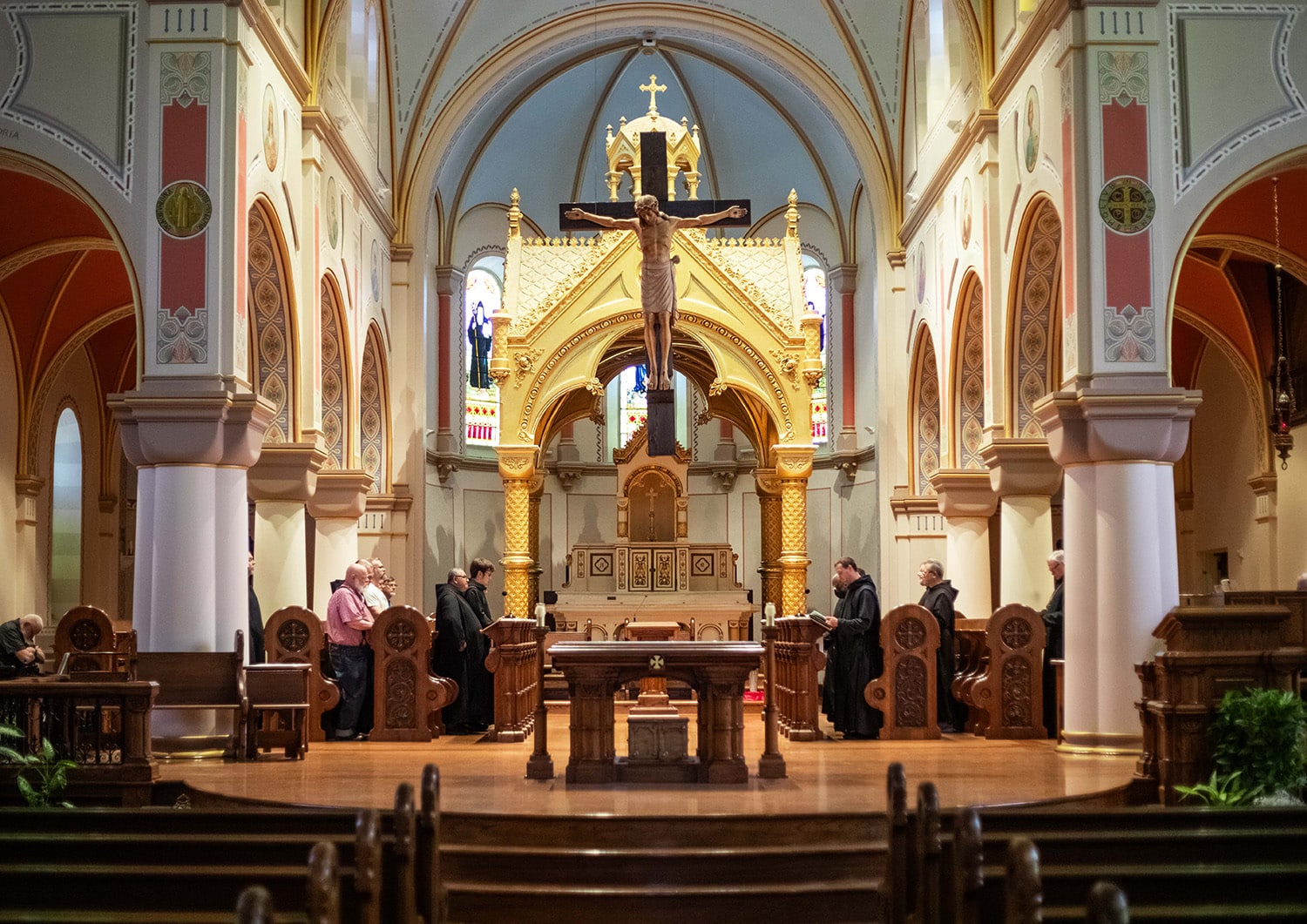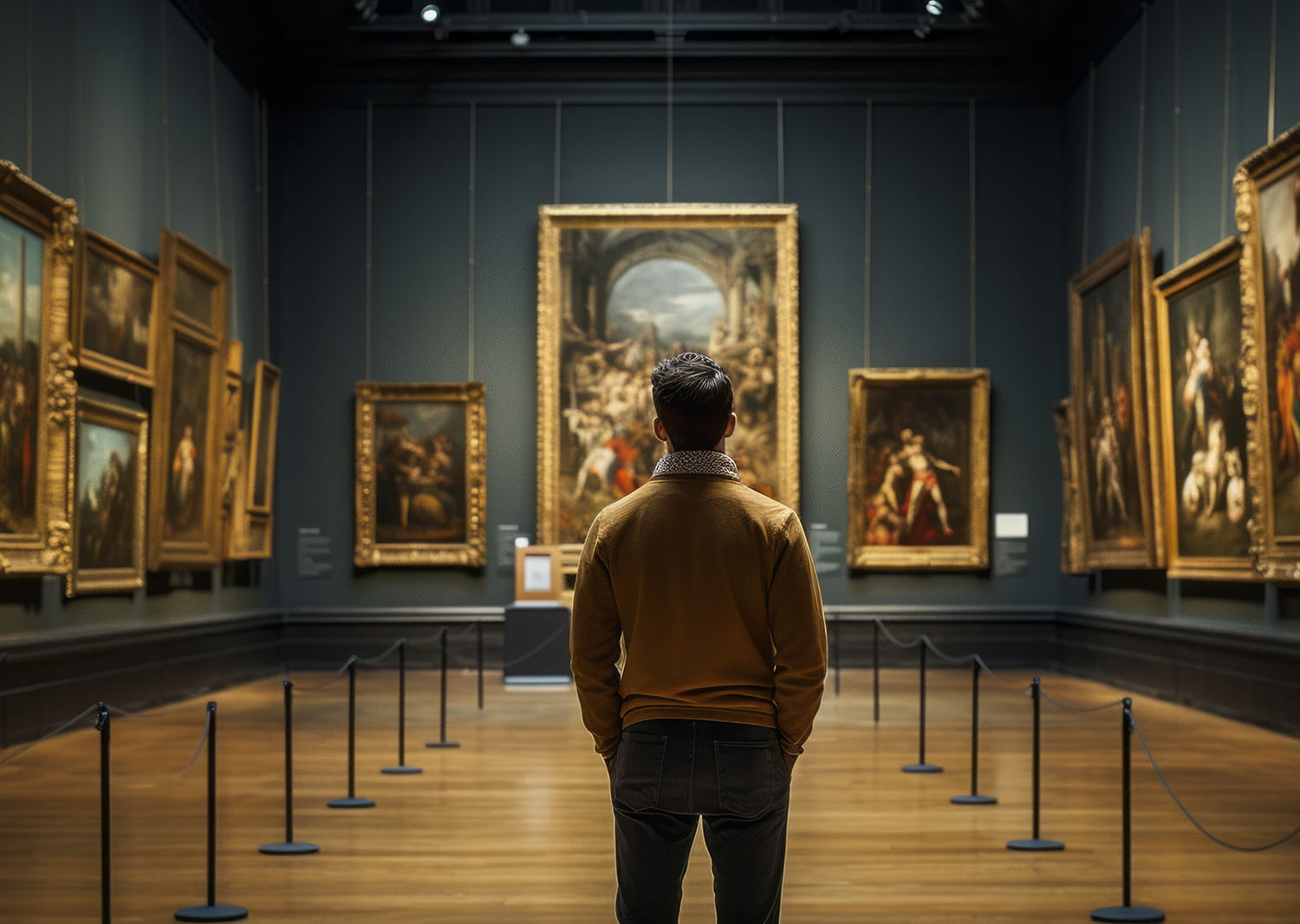Brother Michael Taffe, OSB, still remembers when he decided to dedicate his life to God as a monk more than 25 years ago.
“We all have a God-size hole in us,” he told Our Sunday Visitor. “And what fills that?”
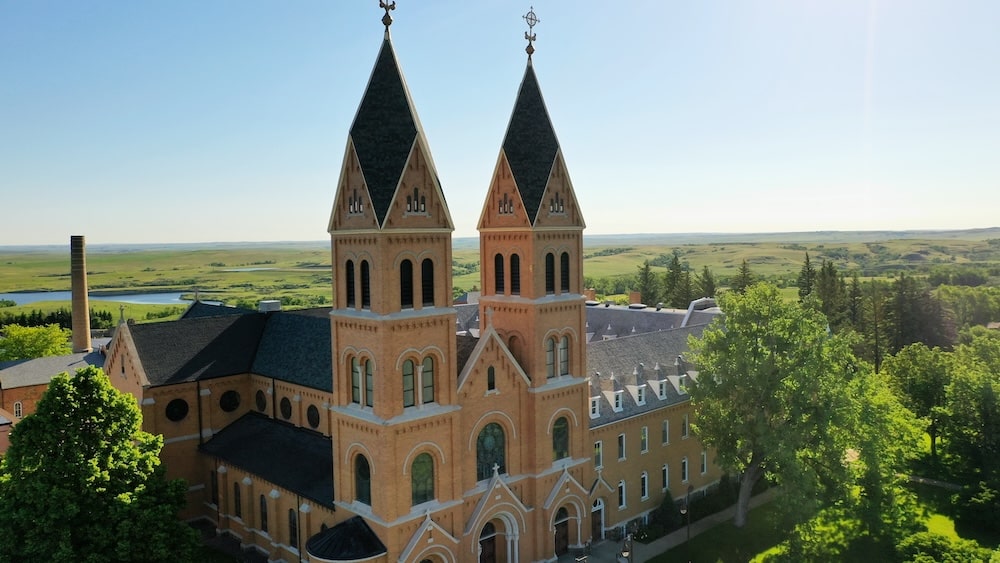
At the age of 40, he entered Assumption Abbey, a Benedictine monastery in Richardton, North Dakota. A psychologist who grew up in Minnesota, he recalled asking himself ahead of time: “At my deathbed, what do I want to say about how God gave me this life and what I’ve done with it?”
Assumption Abbey dates back to 1899, when it was founded by a Swiss monk, Father Vincent Wehrle, OSB. Today, the community includes 41 monks — half of them priests, and half of them brothers. They live a life shaped by the Gospel, the Rule of St. Benedict and their three vows of obedience, stability and conversatio morum (“conversion of life”), or fidelity to the monastic way of life.
Many of them (28 monks) live at the monastery full time. Others who serve as professors and pastors live outside. Another seven live at their daughter house in Bogotá, Colombia, which runs two schools.
These men make a radical gift of their lives to Christ, Brother Michael described, and make themselves available to the monastic community as well as the larger Church and world.
Clad in black habits, they live a life that balances prayer, work and leisure. They focus on living simply and seeking God through beauty. They value silence as well as living in community. They run a gift shop and wine cellar. They make items including soap, candles and bread, which they sell. They also prioritize hospitality.
The community, which runs a visitor center, welcomes guests to stop by, pray in their church and walk through their grounds. They invite prayer requests. They also host retreats and offer tours.
“Hopefully that’s kind of planting a seed or nourishing a seed in terms of love of Christ and the Church,” Brother Michael said of visitors’ experience, adding that the monastery serves as a “place of peace and serenity” and an “oasis in our often too crazy world.”
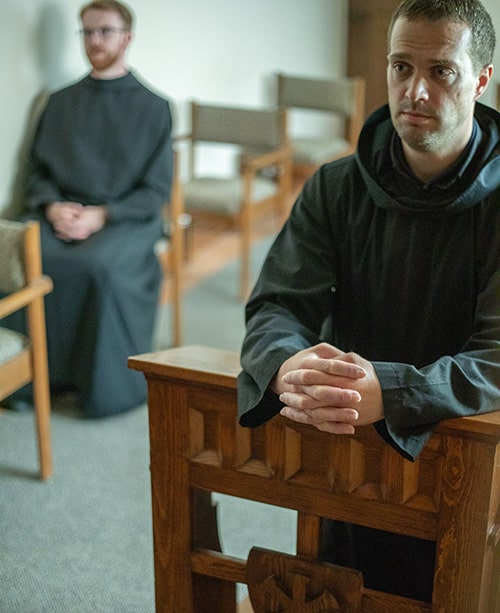
A simple life
The monks, he said, live simply and in a countercultural way.
Most of them don’t have cell phones. They share old cars. When they aren’t wearing their habits, they wear donated clothes. They hire some part-time cooks and a part-time maintenance person, but perform the other work themselves, including cleaning and maintenance.
They give of themselves in a special way to Christ and the community through their schedule of prayer and work, Brother Michael said.
“Our day is pretty much scheduled all the way,” he said. “Part of the struggle, especially in our individualistic world, we’re raised to think about, what’s in it for me? … The question should always be, how do I serve Christ and the community and the Church?”
Through the giving of themselves, he added, “hopefully we’re presenting as a mirror of Christ for these people and ourselves.”
One day at a time, they strive to grow closer to Christ by being brutally honest with themselves, he said.
“How do I become a better monk?” they ask themselves. “How do I serve Christ better because I stumbled yesterday?”
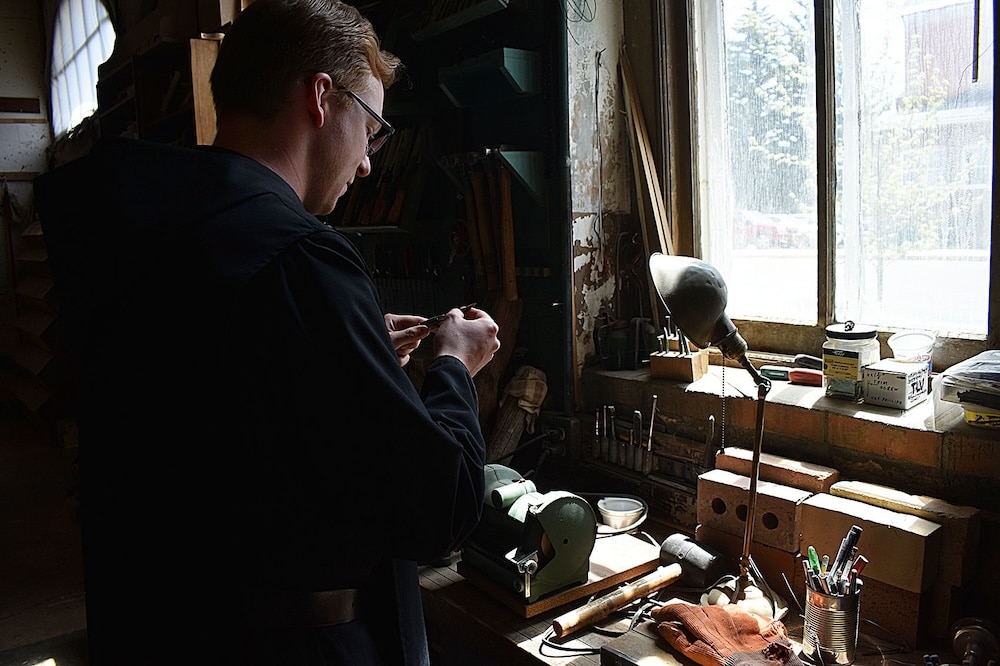
Advice for vocations
Speaking about his own vocation, Brother Michael said that people tend to be called to religious life through “small inklings, small steps.”
“I think most of us would be very joyous if God sent an email that said … ‘This is what I want you to do,'” he said. “But it tends to be kind of a slower process in our hearts or in our guts.”
He shared his guidance for people who may be discerning this way of life.
“One has to have the ability to sit with themselves,” he began. “To be able to sit with oneself and listen to what God is saying.”
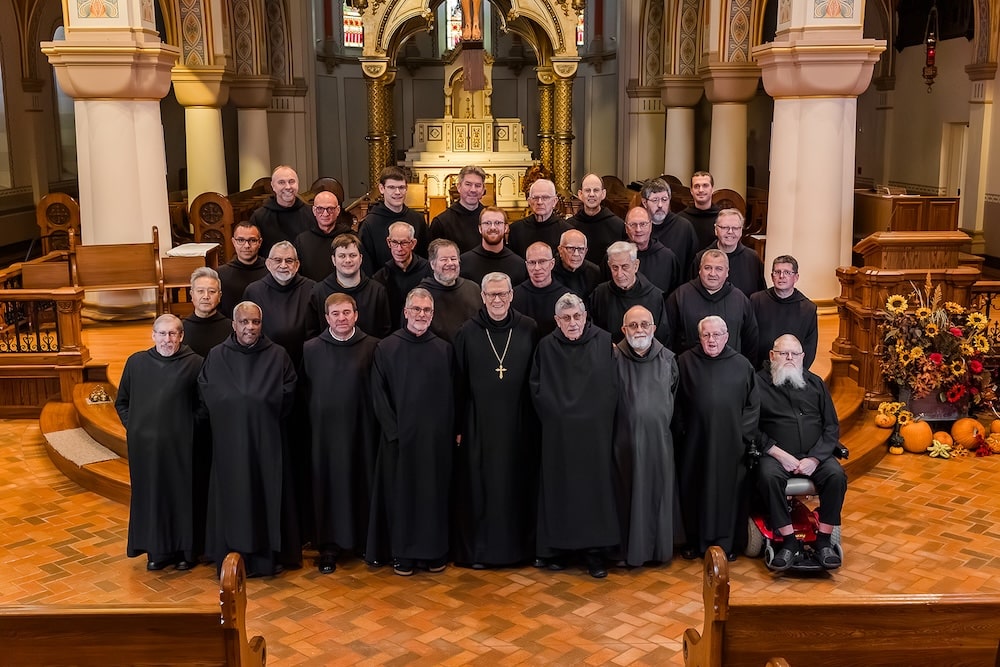
He recommended that they find someone to walk with them as a spiritual director or guide as well as discern whether they feel a sense of peace as they visit different places.
The other part, he said, is to not be afraid. He encouraged every person, no matter their vocation, to make time for God.
“No matter what our state in life is, to be able to have that prayer life and to carve out our time for God in between everything else that’s happening, we’re just going to be much more able to give love to other people because then we’d be open to love.”

